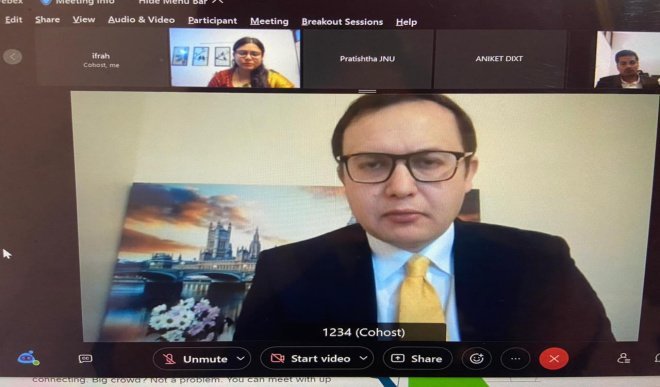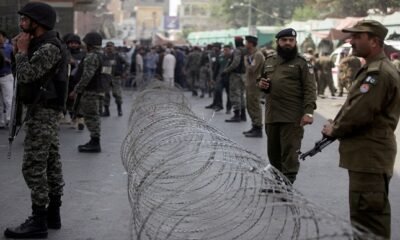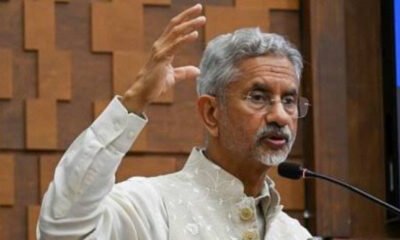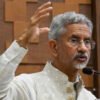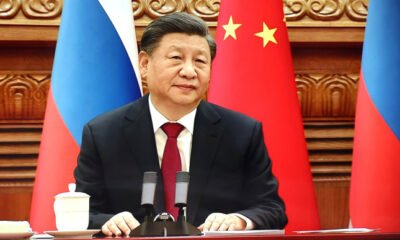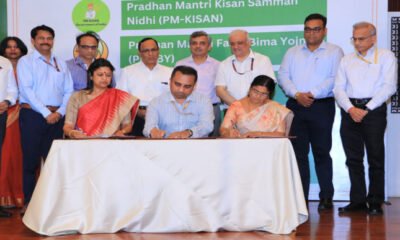International
Plight of Afghan Journalist under Taliban
The sudden and brutal takeover of Afghanistan by the Taliban terrorists on 15th August 2021 has forced Afghanistan to be one of the terror hubs and victims of the most severe violations of human rights in the world. Today, we denote the world as globalised and we also understand that any citizen would want to uphold their identity with dignity. But in Taliban occupied Afghanistan this identity has been left in a chaotic order. The Taliban are steadily dismantling the human rights gains of the last twenty years. And amongst others the most affected community has been the ones who are actually upholding the freedom of speech and expressions. They are the news bearers or the journalists who have taken courage to come out of this prison like society and speak the truth to the world.
To discuss more on this issue, a webinar was organised by Red Lantern Analytica, a New Delhi based think tank on 27, November 2021. The webinar was opened by Somya, Research Scholar at Red Lantern Analytica who welcomed the speakers and introduced the moderator. The webinar was moderated by Sania Jamal, Research Scholar, Jamia Millia Islamia.
The first speaker was Mr Abdullah Khenjani, former Deputy Minister of Coordination, Strategy & Policy in Afghanistan’s State Ministry for Peace. In this role, he coordinated the peace process with the Taliban on behalf of the Afghan government.
Mr Khenjani summarised the issue in ten points. He pointed out that the takeover of Taliban has made various changes and shifts and most of the supportive mechanism including the unions, the journalist federation have disappeared. No government or institution is any longer promoting or supporting free media in Afghanistan. Under Taliban’s oppressive regime self-censorship of the journalists has gone to the highest. In addition to that nearly seven thousand journalist and media workers including the most prominent and leading journalist have left the country and has taken asylum in some other country which resulted in an evident brain drain in the country.
He further opined that, Afghanistan is a traditional country where there is no strong political institutions such as political parties, therefore, media had been playing a critical role in order to criticize the government. Since the takeover by the Taliban, constructive criticism has gone from the traditional media in Afghanistan. He further said that the Taliban is not ready to hear any criticism from the media or even independent commentators. no media could report on corruption, mismanagement, lack of capacity of government or Taliban’s behaviour towards people. No such reports at all.
Next speaker was Ms. Roya Musawi who is a young and energetic journalist, public communicator and writer, she had also served in different national and international organizations in support of human rights, women’s rights, youth, gender equality, IDPs, and returnees.
Ms. Musawi said that , since the takeover by the Taliban, the media in Kabul has stopped broadcasting and publishing. The Taliban ordered them to get a work permission from them and then only the media could restart working and under the new working permission if a journalist in a particular province wants to broadcast or publish a report they should send it to the Directorate of Taliban thus there is a visible censorship of media and journalists by the Taliban. She continued by saying that, the fall of the government in Afghanistan, seventy two cases of violence against the journalists across the country have been recorded, of which two have been of killing, one of self-suicide and many of detention, torture, threats. Women journalists in Afghanistan except Kabul are not allowed to go to their offices without a male company. She also added that more than 60% of the journalists have lost their jobs and there is no freedom of speech under the Taliban rule.
The webinar continued with the questions and answers sessions and ended with a vote of thanks by Shaan Chaudhary, Research Scholar, Red Lantern Analytica.


